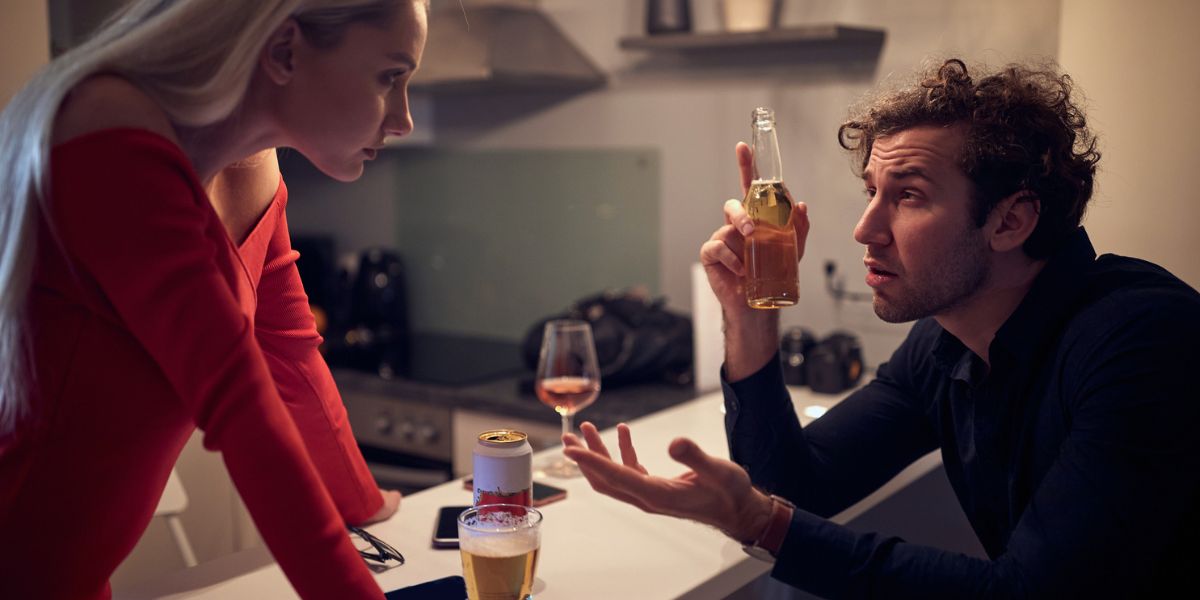What Does Enabling Addiction Mean?


Enabling addiction is often seen as helping, but it can actually make recovery more difficult. This situation is complex because it involves feelings of love, fear, and obligation. These emotions can create a barrier to recovery.
Enabling behavior is when someone unintentionally supports addiction by trying to protect or help the addicted person. This introduction discusses how enablers can either support or hinder individuals dealing with addiction. It highlights the significance of promoting recovery rather than enabling dependency.
Supporting recovery is crucial for those struggling with addiction. Enabling dependency can be harmful in the long run.
What Is an Enabler?
Enabling is making something possible by offering the necessary resources or support that would otherwise be unattainable. An enabler is the person who provides these additional capabilities and opportunities.
Wanting to help our loved ones is common, but excessive help can be harmful, especially when dealing with addiction. Helping too much can enable the addiction and prevent the person from taking responsibility for their actions. Setting boundaries and encouraging the person to seek professional help is important. Supporting them in finding resources and treatment options can benefit them in the long run.

Addiction Enabling Behaviors
Addiction enablers are typically relatives, friends, or significant others who provide financial assistance or otherwise aid in perpetuating a loved one’s dependency.
Addiction enablers often do not intentionally promote or condone substance abuse. Instead, they think they are helping or protecting the addicted person from their own negative actions or unexpected dangers. Identifying and ceasing enabling actions can be as difficult as conquering alcohol or drug use.
Enablers may join in drinking or doing drugs with someone who has a substance abuse issue. This is because they may not fully understand the severity of the situation. What starts as a seemingly harmless “One beer won’t hurt” can rapidly escalate into binge drinking.
Research shows a significant correlation between codependency and enabling alcohol or drug addiction, particularly among children of individuals with substance use disorders. Frequently, caring for the addicted individual becomes the sole identity and purpose of a person or their family. Effective addiction treatment often involves family therapy to explore how dysfunctional behaviors contribute to the addiction.
You can categorize enabling behaviors into four distinct types:
- Hope-Based Enabling
- This support focuses on staying positive and finding small signs of improvement in someone fighting addiction. It also gives hope to those supporting the person, making them believe they can help with love. It also offers hope to those who support the person struggling, making them think they can help them recover with love.
- Fear-Based Enabling
- People with addiction may behave in unexpected ways. They may threaten to harm themselves or others to fulfill their desires. This behavior can be unpredictable and dangerous.
- People who help those with addiction often provide them with what they want to prevent any harm or conflicts. This is done to keep them safe and ensure their well-being. By giving them what they want, it can help prevent any potential issues that may arise. This approach supports and assists those struggling with addiction.
- Guilt-Based Enabling
- Numerous people who struggle with addiction often blame their dependency on the past deeds or lack thereof of a close person. People who enable usually try to ease their guilt by supporting or excusing the person with an addiction. Sometimes, they even take the blame for the addiction themselves.
- Victim-Based Enabling
The use of alcohol or drugs is often a typical response to traumatic or tragic experiences. Relatives of those addicted may rationalize the substance misuse as understandable, considering the difficulties the individual has faced. This mindset of victimhood deflects accountability from the person with an addiction, depicting them as mere observers or casualties of their situations.
Enablers frequently mistake their actions for providing support, although these are distinct concepts. Ultimately, the likelihood of recovery from addiction diminishes if the cycle of enabling persists.
Enabling Addiction: How to Recognize the 7 Signs
To see if you are enabling addiction, you need to identify enabling behaviors. You should also assess your own actions and those of your family members.
Indications that you’re facilitating a loved one’s addiction include:
- Overlooking, downplaying, or denying the seriousness of the substance misuse issue
- Helping them avoid consequences by getting them released from jail, repairing the harm they caused, or using connections to support them.
- Providing financial support such as housing, car payments, or covering other costs
- Facilitating them with money, transportation, or lodging to acquire and use drugs
- Sacrificing your financial, physical, and mental health to support them
- Blaming the addict’s actions on other people or circumstances
- An inability to implement ultimatums and uphold boundaries
How to Stop Enabling Your Loved One’s Addiction
To stop enabling a person with an addiction, it may be necessary to seek treatment programs and support both for yourself and for them.
Measures to halt enabling an alcoholic or addict include:
- Setting up and implementing limits and repercussions.
- Ceasing monetary assistance.
- Letting them confront the legal, societal, and economic consequences of their negative behavior
- Establishing physical distance by choosing not to be in the same location.
- Ignoring their efforts to convince or dispute with you.
- Joining support groups for relatives of substance abusers.
- Pursuing personal therapy to address enabling tendencies and cultivate beneficial coping mechanisms.
One of the most crucial steps is to recognize that addiction is a disease, not a choice. Convincing someone to stop their alcohol use disorder or drug addiction is not going to work. Getting professionals involved and planning an intervention for addiction treatment can help your loved one overcome their addiction. Research indicates that substance users respond more positively to moderated discussions that provide practical support rather than aggressive confrontations about their addiction.
Living in a treatment center is often the best option for everyone involved. It helps family members and the person with addiction to work on their boundaries and coping skills individually.

Substance Use Disorder Treatment
If someone you care about has a problem with addiction, it can be helpful to support them in getting treatment. This can greatly improve their chances of recovery and overall well-being. It is important to show support and encourage them to get the help they need. By taking this step, you show that you want to see them healthy and happy.
White Oak Recovery Center is a private residential facility for addiction treatment and rehab. It offers a peaceful and supportive environment for residents. This allows them to focus on their recovery needs without distractions from family dynamics and habits
We use different therapies like cognitive behavioral therapy (CBT) and family therapy to understand the reasons behind addiction. This helps build confidence and develop healthy coping skills for dealing with challenges in the future.
Allow us to help you embark on a rewarding, lifelong recovery journey. Contact our treatment specialists today. Reach out now.

Am I covered for addiction treatment?
Your insurance may cover treatment. Call now for an entirely free and confidential assessment. Recovery starts with a phone call.

- Falkin, Gregory P. and Strauss, Shiela M., “Social Supporters and Drug Use Enablers: A Dilemma for Women in Recovery.” Addict Behav., Jan. 2003.
- Lander, Laura, et al., “The Impact of Substance Use Disorders on Families and Children: From Theory to Practice.” Social Work Public Health, Jul. 2013.
- White, William, and Davidson, Larry, “Enabling or Engaging? The Role of Recovery Support Services in Addiction Recovery.” Alcohol Treat Q., Oct. 2010.
- Polcin, Douglas L., et al., “Substance Users’ Perspectives on Helpful and Unhelpful Confrontation: Implications for Recovery.” Journal of Psychoactive Drugs, Jun. 2012.
Medical Disclaimer:







